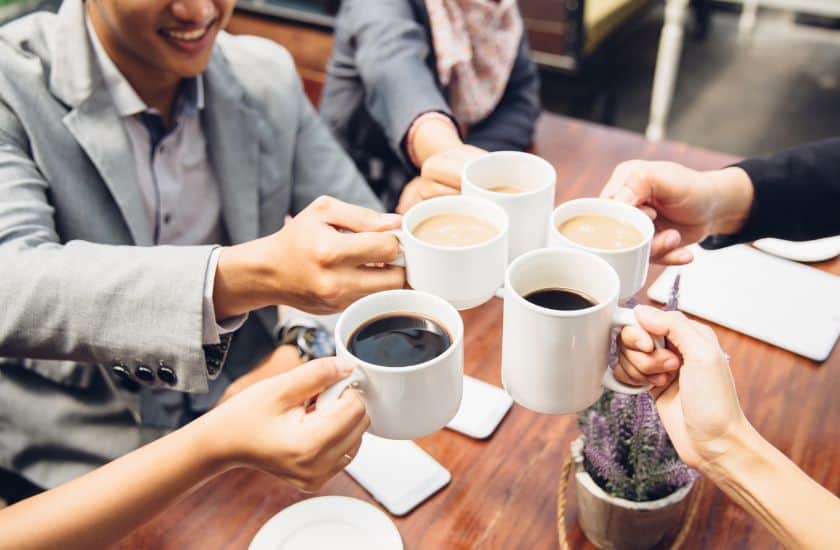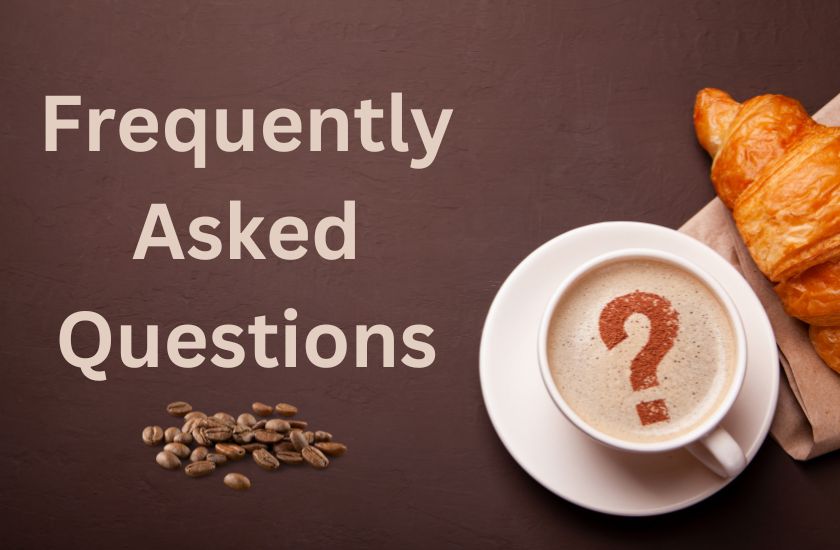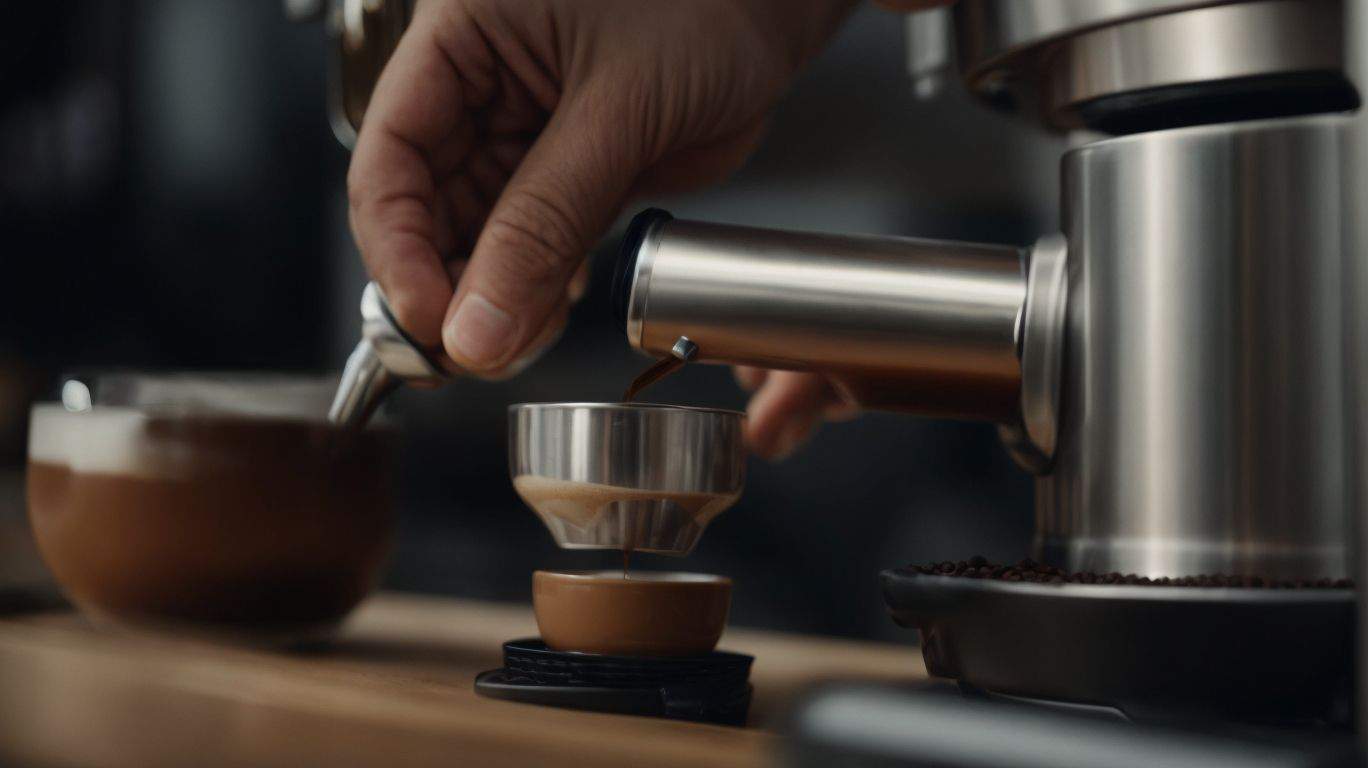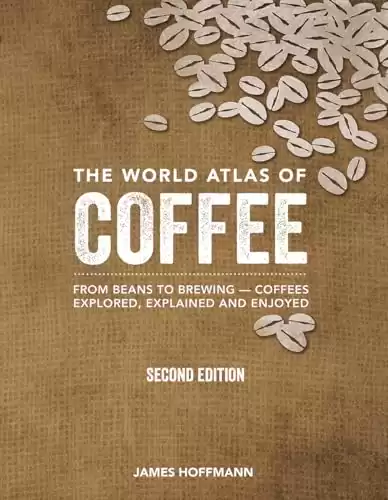Brewing Harmony: How Not To Be A Coffee Snob in 5 Simple Steps
This post contains affiliate links, which means we receive a small commission on qualifying purchases. This does not impact your cost in any way. See details here.

Coffee snobbery is a term used to describe someone who is overly particular and judgmental about their coffee. These individuals often have a superior attitude towards others who may not share their same preferences or knowledge about coffee.
While being a coffee enthusiast is perfectly acceptable, being a snob can have negative effects on oneself and others. In this article, we will explore the reasons for coffee snobbery, its negative effects, and how to avoid it in 5 simple steps.
A coffee snob is someone who believes that their way of brewing and drinking coffee is the only correct way. They often look down on those who prefer different methods or types of coffee. This person may also have an extensive knowledge about coffee and insist that others follow their recommendations or techniques.
People may become coffee snobs for various reasons, such as:
- To show off their knowledge about coffee and feel superior to others.
- To be a part of a trend or community where being a coffee snob is seen as desirable.
- To feel a sense of control and perfection in their coffee routine.
However, being a coffee snob can have negative effects, including:
- Alienating others who may feel intimidated or judged by their behavior.
- Missing out on different coffee experiences by limiting themselves to their preferred method.
- Spending more money on coffee due to their high standards and preferences.
To avoid being a coffee snob, one can follow these 5 simple steps:
- Be open to trying different types of coffee and brewing methods, even if it may not align with your preferences.
- Don’t judge others for their coffee choices and respect their individual tastes.
- Educate yourself about coffee without being condescending towards others who may not have the same level of knowledge.
- Remember that coffee is subjective, and what may taste good to one person may not be enjoyable for another.
- Don’t let coffee define your identity and be open to learning and trying new things.
Instead of being a coffee snob, one can be a coffee enthusiast and enjoy the benefits of expanding their palate, connecting with others through coffee, and supporting different coffee cultures. To share your love for coffee without being a snob, you can:
- Host a coffee tasting event and encourage others to try different types of coffee.
- Share interesting facts and information about coffee without being condescending.
- Support local coffee shops and roasters, and appreciate the diversity of coffee culture around the world.
By following these steps, one can enjoy coffee without the negative effects of snobbery and instead, foster a community of coffee enthusiasts who appreciate and respect different tastes and methods.

What Exactly Is A Coffee Snob?
A coffee snob is an individual who looks down on others for their coffee choices, insisting on only consuming the highest quality and most meticulously prepared coffee. They often prioritize complex brewing methods, specific bean origins, and artisanal roasting techniques, dismissing simpler or more mainstream coffee options. This attitude can create a barrier to enjoying coffee with a wider audience and embracing diverse coffee preferences.
Why Do People Become Coffee Snobs?
Have you ever encountered someone who turns their nose up at your choice of coffee, claiming that only their preferred method or blend is the “right” way to enjoy it? This type of behavior is often associated with coffee snobbery, and it can be quite off-putting. But why do people become coffee snobs in the first place? In this section, we will discuss the possible reasons behind this behavior, including the desire to show off their knowledge, feel superior, or simply be a part of a trendy subculture.
1. To Show Off Their Knowledge
- Share knowledge humbly: Instead of trying to show off your expertise, share insights about coffee in a modest and respectful manner.
- Engage in meaningful conversations: Encourage discussions that are inclusive and focus on mutual learning rather than trying to showcase your individual knowledge.
- Respect diverse opinions: Acknowledge that everyone has different levels of coffee knowledge and appreciate various perspectives.
- Offer guidance, not criticism: Instead of criticizing others, offer guidance and recommendations with kindness and understanding.
- Embrace continuous learning: Stay open to learning from others and expanding your own knowledge about coffee.
Read: You Should Take Barista Classes If You Want To Make Better Brew
2. To Feel Superior
To feel superior as a coffee enthusiast, follow these steps:
- Educate without arrogance, sharing knowledge humbly.
- Encourage others’ preferences, respecting diverse tastes.
- Participate in coffee discussions, valuing others’ insights.
- Engage in coffee events, fostering a sense of community.
- Support local coffee businesses, contributing to the coffee culture.
3. To Be Part Of A Trend
- Observe Trend Patterns: Stay updated on emerging coffee trends, such as new brewing methods or unique flavor profiles, in order to be part of the latest trends.
- Engage with Coffee Community: Join coffee forums or social media groups to discuss and explore trending coffee topics and be part of the conversation.
- Visit Trendy Coffee Establishments: Experience the latest coffee trends by visiting specialty coffee shops or attending pop-up coffee events.
Additionally, consider trying out limited-edition coffee releases or trendy coffee blends to stay abreast of the coffee trend scene and be part of the trend.

What’s Wrong With Being A Coffee Snob?
Being a coffee snob may seem harmless at first, but there are actually several negative effects that can arise from this attitude. In this section, we will discuss the consequences of being a coffee snob and how it can impact not only yourself but also those around you. From alienating others to missing out on different coffee experiences and spending more money, we will explore the downsides of being a coffee snob in depth. Keep reading to find out more.
1. Alienating Others
- Respect preferences: Avoid alienating others by criticizing their coffee choices.
- Encourage exploration: Share diverse coffee experiences with open-mindedness.
- Embrace inclusivity: Create a welcoming coffee community that appreciates all tastes.
2. Missing Out On Different Coffee Experiences
- Explore Different Coffee Types: Don’t miss out on the opportunity to venture beyond your usual choice and savor various brews like pour-over, cold brew, or Turkish coffee.
- Visit Diverse Coffee Establishments: Expand your coffee horizons and experience different atmospheres, from cozy local cafes to trendy specialty coffee shops.
- Participate in Coffee Events: Broaden your coffee knowledge by attending tastings, brewing workshops, or coffee festivals.
Coffee lovers who embrace diverse experiences cultivate a deeper appreciation for the rich world of coffee.
3. Spending More Money On Coffee
- Track spending: Keep track of expenses related to coffee to gain insight into the amount spent on various types of coffee.
- Create a budget: Set aside a designated amount for coffee purchases to prevent overspending.
- Limit coffee outings: Decrease the frequency of visits to coffee shops in order to manage costs and save money.
Read: Looking To Treat Yourself? Most Expensive Coffees In The World
How To Avoid Being A Coffee Snob?
Are you tired of being labeled as a coffee snob? Don’t worry, you’re not alone. In this section, we’ll explore five simple steps to help you break free from the coffee snob mentality. By following these tips, you can avoid being a coffee snob and enjoy your favorite beverage without any judgment or superiority. From being open to trying new types of coffee to not letting your coffee preferences define you, we’ve got you covered. Let’s dive in and brew some harmony!
1. Be Open To Trying Different Types Of Coffee
- Explore various coffee origins, such as Ethiopian, Colombian, or Kenyan.
- Experiment with different brewing methods like pour-over, French press, or cold brew.
- Try diverse roasts such as light, medium, or dark to understand flavor profiles.
A friend used to stick to one type of coffee until they traveled to Italy and discovered the joy of trying different espresso blends in local cafes, leading to a newfound appreciation for diverse coffee experiences.
2. Don’t Judge Others For Their Coffee Preferences
When it comes to coffee, it’s important to embrace diversity in preferences. Understand that 2. don’t judge others for their coffee preferences. Whether someone enjoys a simple black coffee or an elaborate flavored latte, respect their choice. Instead, focus on sharing your own passion for coffee in a positive and inclusive manner.
Offer to explore different types of coffee together or host a coffee tasting event to celebrate the variety of options available.
3. Educate Yourself Without Being Condescending
- Be humble in your quest for knowledge, acknowledging that there’s always more to learn about coffee.
- Engage in open discussions, sharing insights without belittling others’ viewpoints.
- Offer guidance and information in a supportive and approachable manner.
Remember, educating oneself about coffee should be an inclusive and enriching experience for everyone involved, without being condescending.
Read: You Should Take Barista Classes If You Want To Make Better Brew
4. Remember That Coffee Is Subjective
Remember that coffee is subjective, and everyone’s preferences differ. Embrace diverse coffee tastes, acknowledging that what’s perfect for one person may not be the same for another. This mindset fosters a welcoming coffee culture, encouraging exploration of various flavors and styles without judgment.
Coffee’s subjective nature is evident in its global appeal. From the rich, bold Italian espresso to the smooth, creamy Turkish coffee, each culture has distinct preferences, showcasing coffee’s diversity.
5. Don’t Let Coffee Define Your Identity
- Acknowledge and embrace other aspects of your personality and interests.
- Explore diverse hobbies and activities outside of the coffee realm.
- Connect with others based on shared values and experiences beyond just coffee.
- Embrace the multifaceted nature of your identity.
- Seek fulfillment in various aspects of life, not solely through coffee.
Fact: Coffee consumption has been linked to a decreased risk of depression and certain chronic diseases.

What Are The Benefits Of Being A Coffee Enthusiast Instead?
In our fast-paced world, coffee has become more than just a morning pick-me-up. It has evolved into a culture and a way of life for many. While some may view being a coffee enthusiast as being a snob, there are actually numerous benefits to embracing this beverage with open arms and an open mind. In this section, we will explore the benefits of being a coffee enthusiast, including expanding your palate, connecting with others through coffee, and supporting different coffee cultures.
1. Expanding Your Palate
- Explore diverse coffee origins and roasting methods to broaden your flavor profile.
- Participate in cupping sessions and tastings to develop a nuanced understanding of coffee nuances.
- Experiment with various brewing techniques like pour-over, French press, and AeroPress.
- Attend coffee workshops and events to learn about different flavor notes and aromas.
- Engage with coffee professionals and enthusiasts to gain insights into expanding your palate with unique coffee experiences.
2. Connecting With Others Through Coffee
- Organize coffee meetups, inviting friends or colleagues to bond over a shared love for coffee and to connect with others through this shared interest.
- Engage in coffee-related discussions, exchanging brewing techniques, flavor profiles, and favorite coffee spots to further connect with others who share your passion for coffee.
- Participate in coffee events, such as workshops or tastings, to connect with like-minded individuals and deepen your connection through your mutual love for coffee.
3. Supporting Different Coffee Cultures
- Experience the diverse coffee traditions from around the world, including Ethiopian, Italian, and Vietnamese coffee.
- Interact with local coffee communities and attend events to learn about the various brewing methods and customs.
- Promote fair trade and ethical practices by purchasing coffee beans directly from indigenous growers.
Fun Fact: Coffee was first discovered by a goat herder in Ethiopia around 850 AD.
Read: Cities Around The World To Visit For An Amazing Cup Of Coffee
How To Share Your Love For Coffee Without Being A Snob?
Are you a coffee lover who wants to share your passion for this beloved beverage without coming across as a snob? Look no further! In this section, we will discuss simple and effective ways to share your love for coffee with others. From hosting a coffee tasting event to supporting local coffee shops and roasters, these tips will help you spread the joy of coffee without any pretentiousness. Let’s dive in and discover how to share your love for coffee in a welcoming and inclusive manner.
1. Host A Coffee Tasting Event
- Organize a guest list with a variety of coffee preferences.
- Prepare a selection of different brewing methods and types of coffee beans.
- Provide a scoring sheet for guests to rate the coffee based on its aroma, flavor, and body.
- Encourage discussions about the unique characteristics of each coffee.
- Offer small food pairings to complement the coffee tasting experience.
Fun fact: Coffee cupping, a professional method for evaluating coffee, is similar to a structured wine tasting.
2. Share Interesting Facts About Coffee
- Did you know that coffee is the second most traded commodity on earth after oil?
- Coffee was originally chewed, not brewed.
- It takes approximately 2,000 cherries to make one pound of roasted coffee.
3. Support Local Coffee Shops And Roasters
- Make it a point to visit and support local coffee shops and roasters to discover their unique blends and contribute to the community.
- Take the opportunity to engage with the baristas and roasters to gain insight into the craft and dedication that goes into each cup of coffee.
- Don’t miss out on events or promotions hosted by local coffee establishments as they help foster a sense of community and appreciation for their offerings.
- Spread the word about your positive experiences with local coffee shops and roasters on social media to encourage others to support them as well.

Frequently Asked Questions
1. What does it mean to be a coffee snob?
A coffee snob is someone who is passionate and knowledgeable about coffee. They may have a preference for certain types of coffee and have a deep understanding of different brewing methods and flavor profiles.
2. Can coffee snobs really tell the difference between different types of coffee?
It’s a common misconception that coffee snobs can tell the difference between every type of coffee. Just like wine snobs, their tastes can be subjective and they may not be able to distinguish between similar flavors.
3. How can I outsmart a coffee snob?
According to experienced coffee roasters, there are 5 simple steps you can follow to outsmart even the most hoity toity of coffee snobs. These steps include taking deep whiffs, identifying flavors, using the “slurping” technique, contemplating flavors, and enjoying your coffee.
4. What is the best way to identify different flavors in coffee?
The best way to identify different flavors in coffee is to follow a tasting technique similar to wine tasting. Take note of the aroma, flavors, acidity, and finish of the coffee. You can also refer to a flavor wheel or tongue diagram to help you pinpoint specific flavors.
5. Are there certain types of coffee that coffee snobs prefer?
Coffee snobs may have their own preferences, but some of the more common types of coffee they enjoy include Papau New Guinea Village Premium Morobe, Ethiopian Harrar, and any coffee with apricot notes or a nippy acidity. They may also appreciate unique flavors such as nutty or wine-like undertones.
6. Is it okay to poke fun at coffee snobbery?
While there’s nothing wrong with having a bit of fun with coffee snobbery, it’s important to remember that everyone has their own taste preferences and it’s okay to enjoy familiar flavors. Instead of making fun of coffee snobs, try to learn something new from them and appreciate the sea of flavors that coffee has to offer.






